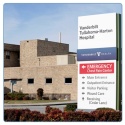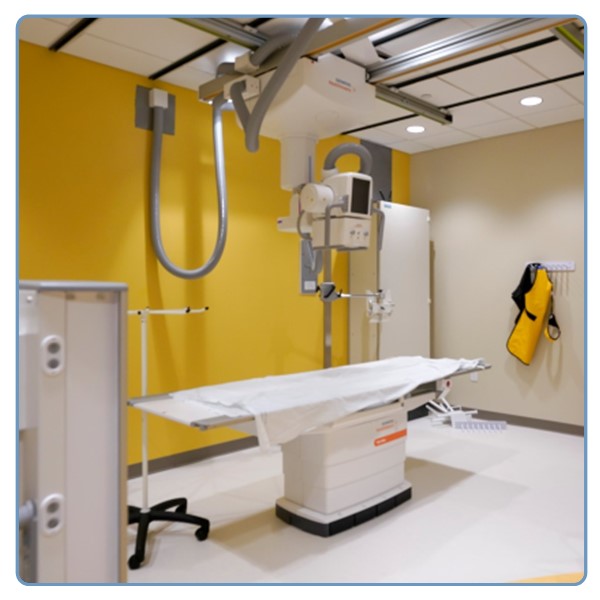
Accredited Provider: Recognition by ANCC of a provider's capacity to award contact hours for nursing continuing professional development and education activities, planned, implemented, and evaluated by the provider. Vanderbilt University Medical Center, Department of Nursing Education and Professional Development is an accredited provider.
Commercial Bias: Favoritism or influence shown toward a product or company in relation to an educational offering.
Commercial Support: Financial or in-kind contributions given by an ineligible company that are used to pay all or part of the costs of an NCPD activity: this must be disclosed to learners. Providers of commercial support may not be providers or joint-providers of an educational activity.
Contact Hour: A unit of measurement that describes 60 minutes of an organized learning activity.
Content Reviewer: An individual selected to evaluate an educational activity during the planning process or after it has been planned but prior to delivery to learners for quality of content, potential bias, and any other aspects of the activity that may require evaluation.
Continuing Education Unit (CEU): The ANCC NCPD Accreditation Program does not utilize this term when referring to NCPD unit of measurement. The CEU is an educational measurement utilizing criteria of the International Association for Continuing Education and Training (IACET).
Continuing Nursing Education: This consists of planned, organized learning experiences designed to improve the knowledge, skills, and attitudes of nurses. It enhances nursing practice, education, theory development, research, and administration. The outcome of continuing education should be to improve the health of the public and nurses pursuit of their professional career goals.
Educational Design: A plan for instruction documenting a professional practice gap, description of the target audience, learning outcomes, content outline, learning engagement strategies, and evaluation strategies.
Enduring Materials: A non-live NCPD activity that lasts over time. Examples of enduring materials include programmed texts, audiotapes, videotapes, monographs, computer-assisted learning materials, and other electronic media that are used alone or with printed or written materials. Enduring materials can also be delivered via the Internet. The learning experience by the nurse can take place at any time and in any place rather than only at one time or in one place.
Ineligible Company: Organizations whose primary business is producing, marketing, selling, re-selling, or distributing healthcare products used by or on patients (ACCME, 2020).
Joint Provider: Planning, developing, and implementing an educational activity by two or more organizations or agencies.
Learner-directed, Learner-paced Activity: A learning activity in which the learner takes the initiative in identifying his or her learning needs, formulating learning goals, identifying human and material resources for learning, choosing and implementing appropriate learning strategies, and evaluating learning outcomes. The learner also determines the pace at which the learning activity is engaged. Learner directed activities may be developed with or without the help of others, but they are engaged in by only one individual.
Nurse Planner: A registered nurse who holds a current, active license with no practice restrictions and a baccalaureate degree or higher in nursing (or international equivalent) who is actively involved in all aspects of planning, implementation, and evaluation of each NCPD activity. The Nurse Planner is responsible for ensuring that appropriate educational design principles are used and that processes are consistent with the requirements of the ANCC NCPD Accreditation Program.
Nursing Continuing Professional Development (NCPD): A specialized nursing practice that facilitates the professional development and growth of nurses and other healthcare personnel along the continuum from novice to expert.
Nursing Continuing Professional Development Activities: Learning activities intended to build upon the educational and experiential bases of professional RN for the enhancement of practice, education, administration, research, or theory development, to the end of improving the health of the public and RNs pursuit of their professional career goals.
Outcome Measurement: The process of observing, describing, and quantifying the predefined indicator(s) of performance after an intervention is designed to impact the indicator.
Planning Committee: At least 2 individuals responsible for planning each educational activity; one individual must be a Nurse Planner and one individual must have appropriate subject matter expertise (content expert).
Provider-directed, Provider-paced Activity: An educational activity in which the provider controls all aspects of the learning activity. The provider determines the learning outcomes based on a needs assessment, and chooses the content of the learning activity, the method by which it is presented, and evaluation methods (examples include live activities, live webinars). The provider controls the time, pace, and place of content delivery.
Relevant Financial Relationship: A relationship with an ineligible company is considered relevant if the products or services of the ineligible company are related to the content of the educational activity.
Summative Evaluation: A method of assessing the worth of a program at the end of the program activities. A summative evaluation focuses on outcomes.











